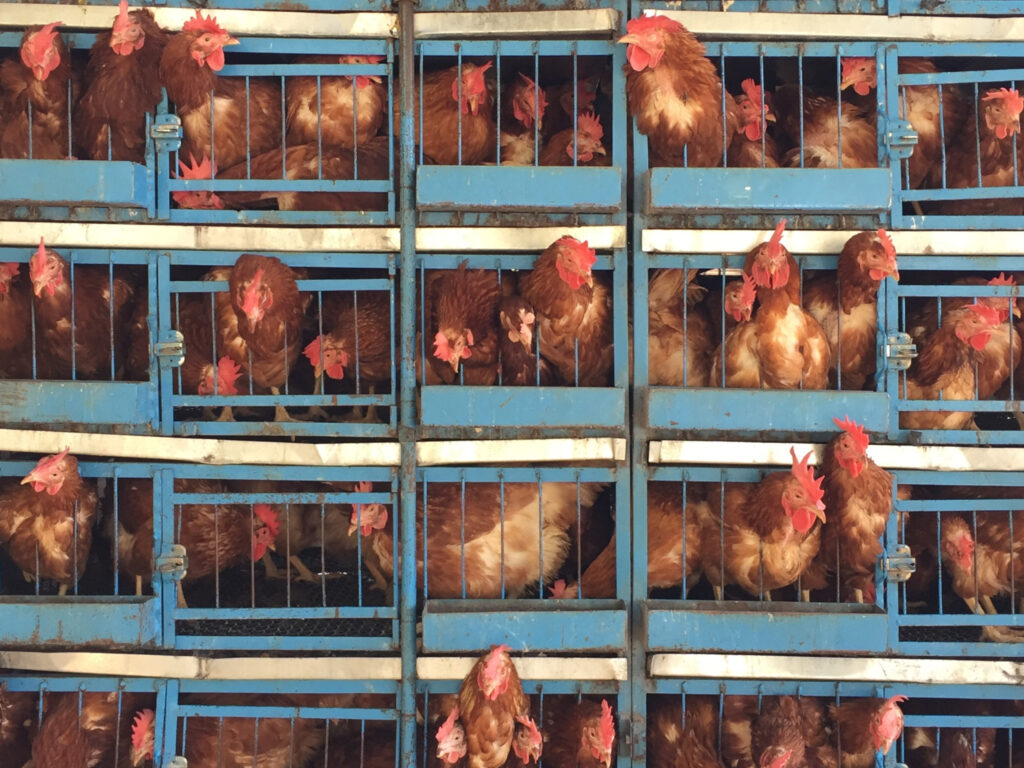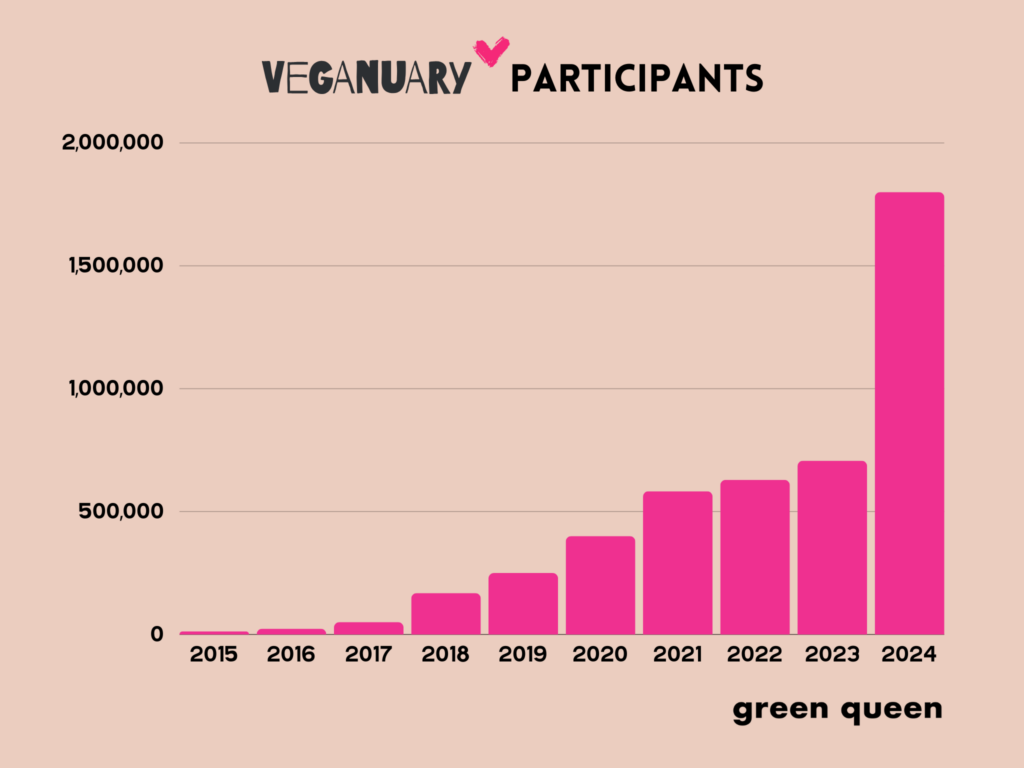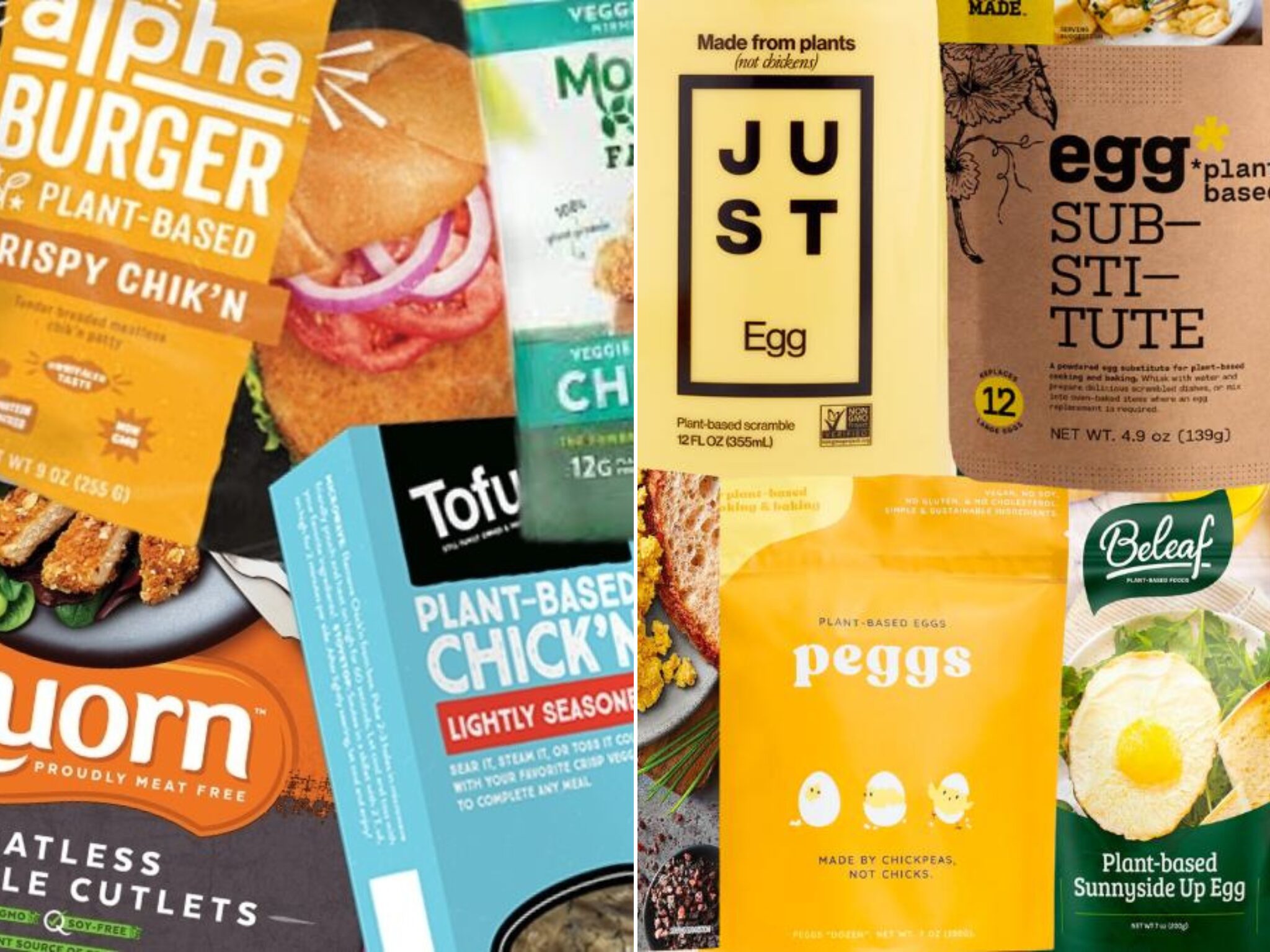5 Mins Read
Veganuary will soon host the first Choose Chicken-Free Week, as part of a wider rollout of mini-campaigns to complement its annual month-long initiative.
On the back of its most successful campaign to date, Veganuary is initiating additional initiatives throughout the year to encourage people to eat fewer animal products and more plant-based food.
It’s starting with the Choose Chicken-Free Week, which will run from April 29 to May 5. For the campaign, Veganuary has already captured the attention of restaurants and brands selling egg- and chicken-free food, including TiNDLE Foods, Next Level Burger, Loma Linda and The Mushroom Hub.
“There are many simple and surprising ways to replace eggs in your favourite recipes,” said Veganuary US director Sandra Hungate. “From everyday ingredients like banana and apple sauce to culinary innovations like aquafaba – the liquid from a can of chickpeas which can be whipped into a beautiful meringue – there’s an egg-free swap out there for everything from breakfast to dessert.”
Why Veganuary is targeting the chicken industry

Coinciding with Respect for Chickens Day (May 4), the campaign will see several of these brands and foodservice operators unveil new offerings and discounts on their products. Next Level Burger and its subsidiary Veggie Grill will launch limited-edition menu options in May, and Ike’s Love & Sandwiches will promote three vegan chicken sandos.
TiNDLE, meanwhile, will be running a two-for-one offer on its products, Vitacost and FireRoad Foods will provide a 15% discount, PLNT Burger will let consumers buy one chicken sandwich and get another for half the price, Loma Linda will put its starter pack (chicken in broth and BBQ sauce) on sale for $6.49, and The Mushroom Hub will roll out a pulled jerk lion’s mane experience box.
Brands will provide recipes using either plant-based chicken or egg – such as TiNDLE’s vegan garlic parm wings, Vitacost’s deviled eggs, and Atlantic Natural Food’s chicken enchiladas – or do away with chicken-related products altogether (think teriyaki tofu burgers by Nasoya and pulled jerk lion’s mane by The Mushroom Hub).
These efforts are to promote a shift away from the chicken industry, which is associated with intensive farming, health risks, animal cruelty and environmental pollution. Though chicken is the most popular meat of all, over the last few years, bouts of avian flu have led to a chicken shortage and subsequent price hike, which has coincided with the cost-of-living crisis – and this trend is set to continue this year.
In the US, almost all chickens (99.97%) are farmed in concentrated animal feeding operations (CAFOs) – that amounts to 8.9 billion birds, versus the 3.6 million that aren’t raised in factories. Globally, as of 2021, over 73 billion chickens are slaughtered around the world each year, according to the FAO. The UN food body has actually advocated for a shift from red meats like beef to poultry, which it argues is less polluting.
While that is technically true, factory-farmed meat has a huge environmental footprint, and poultry meat is still near the top end of the highest-emitting foods, far above plant-based ingredients that are typically used to make analogues.
“For hens used for eggs, suffering is inherent in all methods of egg production – including free-range. Their lives are short, and for male chicks, very short indeed,” Veganuary explained on its website. “They are the wrong sex to lay eggs and the wrong breed for meat, so their lives are deemed to be worthless, and they are killed in the hatchery.”
Veganuary will launch more campaigns after ultra-successful 2024

Veganuary has been on an upward trajectory ever since it was launched in 2014. This year, 1.8 million people officially signed up to the campaign – more than doubling the number from 2023. But separate surveys commissioned by Veganuary have shown that in reality, that figure is much, much higher: the campaign estimates that around 25 million people decided to eat exclusively vegan in January 2024.
Its official survey found that the success rate during the challenge was 45%. And of those who ended up maintaining a plant-based diet throughout the month, 30% intended to continue doing so. If you aggregate that with its official signup numbers, this year’s campaign effectively influenced 540,000 people to ditch meat, dairy, eggs and other animal products.
Even among people who didn’t see Veganuary through, 95% said they’ll reduce their consumption of animal products to some extent, with 74% saying they’ll cut this by half or more. And 73% are very or extremely likely to give veganism a go again in the future.
People found eggs the second toughest animal food to part with during Veganuary (only behind cheese, though by a significant distance). Meanwhile, animal welfare was the number one driver of Veganuary participation this year. So it makes sense for Veganuary to introduce a campaign that touches upon a much-loved food in a much-derided industry.
“Veganuary is not a short-term phenomenon that comes to an end in January. With initiatives like #ChooseChickenFree, the Veganuary movement continues to grow as both individuals and businesses embrace plant-based year-round,” said Hungate.
The popularity of Veganuary is pretty apparent if you walk into a grocery store in most countries during January. It’s hard to escape it, and there are numbers to back that up. This year, more than 2,000 new products and dishes were unveiled during Veganuary. But given we need to accelerate our efforts to change how we eat, the campaign says it wants to have a longer-term effect, and has been working with individuals to support them with dietary shifts, and companies and restaurants to increase the number of vegan options across the calendar year.
This is why Choose Chicken-Free Week is just the start. “Over the summer, Veganuary will run additional campaigns such as Choose Fish-Free Week, BBQ Month, and Choose Dairy-Free Week, aimed at educating the public about the benefits of trying vegan,” said Hungate.
Whether these campaigns will have quite the effect of the main show at the beginning of the year, no one knows. But you only need to look at this year’s participation to know that there’s a strong precedent for them to work.



